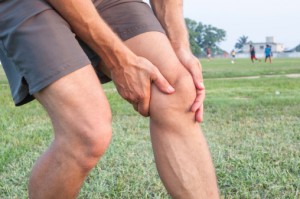

 Osteoarthritis pain can be relieved with weight loss in older adults, and diet and exercise are essential for successful pain management. The previous study suggested that losing just 10 percent of your body weight is enough to get relief from pain associated with osteoarthritis. This 10 percent weight loss is achievable through diet and exercise.
Osteoarthritis pain can be relieved with weight loss in older adults, and diet and exercise are essential for successful pain management. The previous study suggested that losing just 10 percent of your body weight is enough to get relief from pain associated with osteoarthritis. This 10 percent weight loss is achievable through diet and exercise.
Overweight older adults who participated in diet and exercise programs reported less pain, improved knee function, improved mobility, and improved quality of life after a successful 10 percent body weight reduction.
Lead author Stephen Messier said, “We’ve had a 162 percent increase in knee replacements over the last 20 years in people 65 and over, at a cost of five billion dollars a year. From our standpoint, we think this would be at least a good way to delay knee replacements and possibly prevent some knee replacements.”
A previous follow-up on patients showed that a minimum five percent reduction in weight was enough to relieve pain and improve function in knee osteoarthritis. This made the researchers think that if five percent was successful then losing more weight would boost further improvements.
The participants were put on a three-times-a-week exercise program, which included two 15-minute walking sessions separated by two 20-minute strength training sessions.
Messier explained, “The whole thing took an hour, including warm-up and cool-down. It wasn’t anything super, that no one else could do. We think we got these results through very practical means.”
Dietary restrictions in the study were more intense than the exercise part. Participants were restricted to 1,100 to 1,200 calories a day.
Nearly 88 percent of original participants completed the 18-month study. The researchers found the following:
People who completed both diet and exercise programs lost more weight than those who only took part in one or the other.
The diet and exercise groups experienced less knee pain, better function, faster walking, and improved quality of life.
The diet-only group and diet-plus-exercise group saw a greater reduction in inflammation, compared to the exercise-only group.
Participants in the diet-only group experienced significant improvements in the reduction in joint load placed on the knees, compared to the exercise-only group.
Additionally, the more weight a person lost the better they felt overall. Messier said, “Clearly, the group that lost greater than 10 percent of their weight had significantly less pain, better function, lower joint load, and less inflammation. When a physician is saying you should lose some weight, 10 percent should be the goal.”
Dr. Patience White, spokesperson of the Arthritis Foundation, commented, “We’re not talking about people getting down to ideal body weight. They just have to lose 10 percent of their total weight. Someone who is 300 pounds only needs to lose 30 pounds. I think that’s within reach for people.”
White did recommend that patients speak to their doctors prior to embarking on a weight loss journey to ensure it is safe to do.
Messier did offer a warning for those who want the results to last beyond the study, “I think without the long-term nature of the study we wouldn’t have seen some of the results. After six months, all three groups had the same amount of decreased pain. We only started seeing significant differences after 18 months. We want to help people change their behavior long term, so that they do this for the rest of their lives.”
It is well know that the more you weigh, the more stress and pressure your knees have to endure. Therefore, losing weight can have a positive effect on knee pain. Weight loss reduces the amount of weight that the knees have to endure. For example, with every one pound lost, the knees actually experience four pounds less of weight. Furthermore, losing weight reduced inflammation in the body, which is a key risk factor of osteoarthritis.
Being overweight also affects many other health aspects, such as cholesterol levels, blood pressure, and heart disease risk. This is why it is so important to keep your weight within a normal range to reduce your risk of all these health problems.
Here are some simple tips to get you on your way to dropping those extra pounds and experiencing less knee pain.
As researchers warn though, it’s always important you get clearance from your doctor prior to beginning a regime to lose weight, as you will want to do that safely and effectively.
Copyright © www.orthopaedics.win Bone Health All Rights Reserved